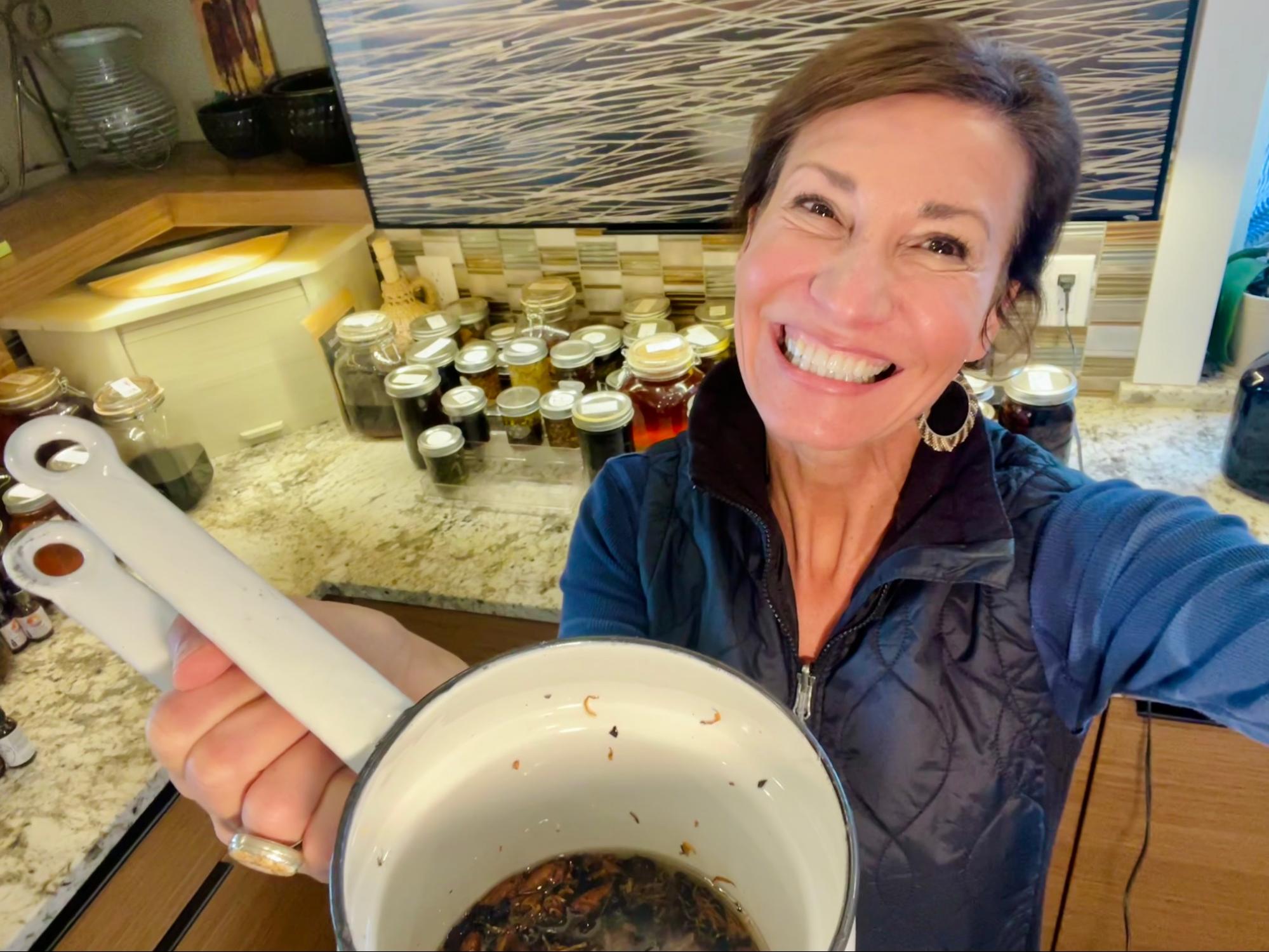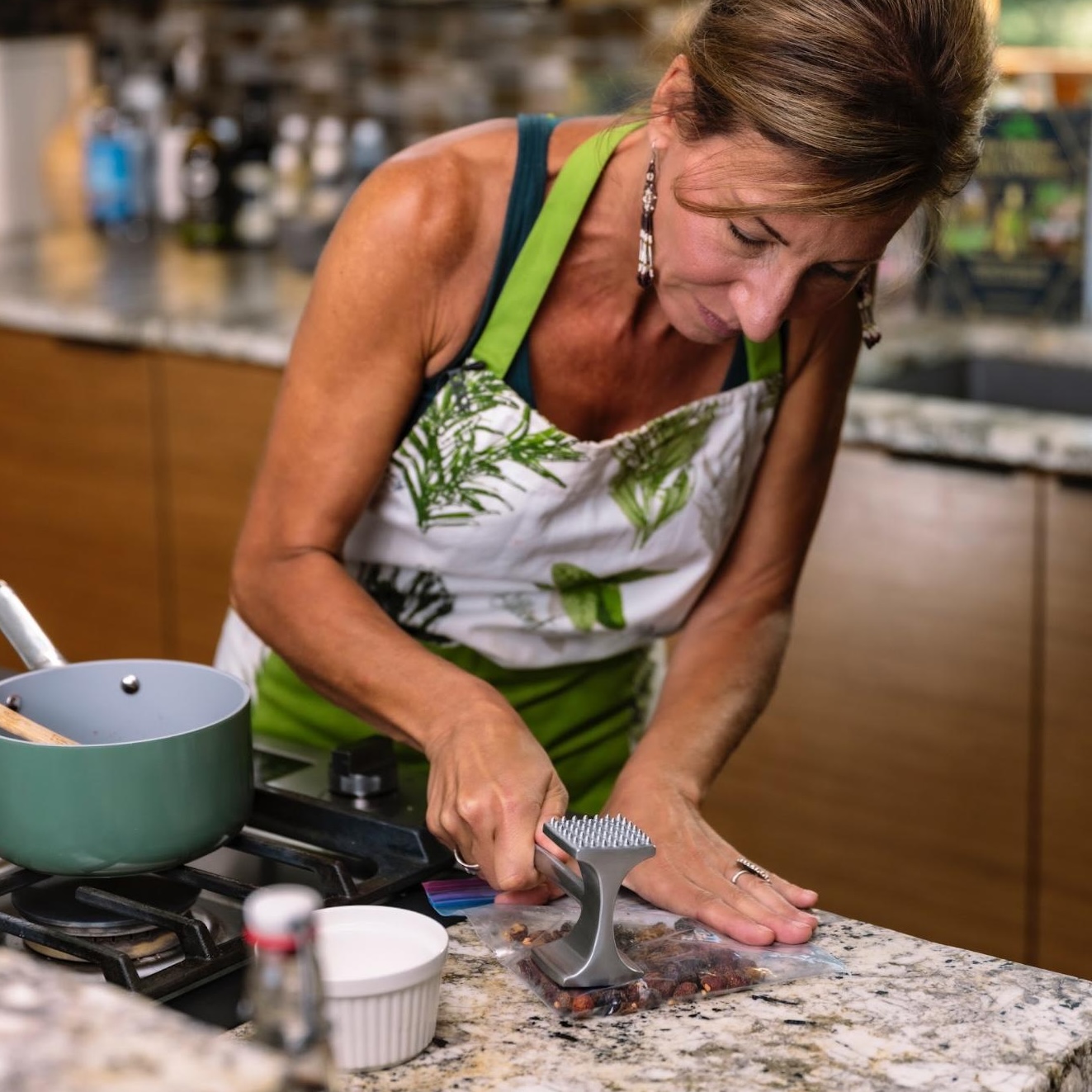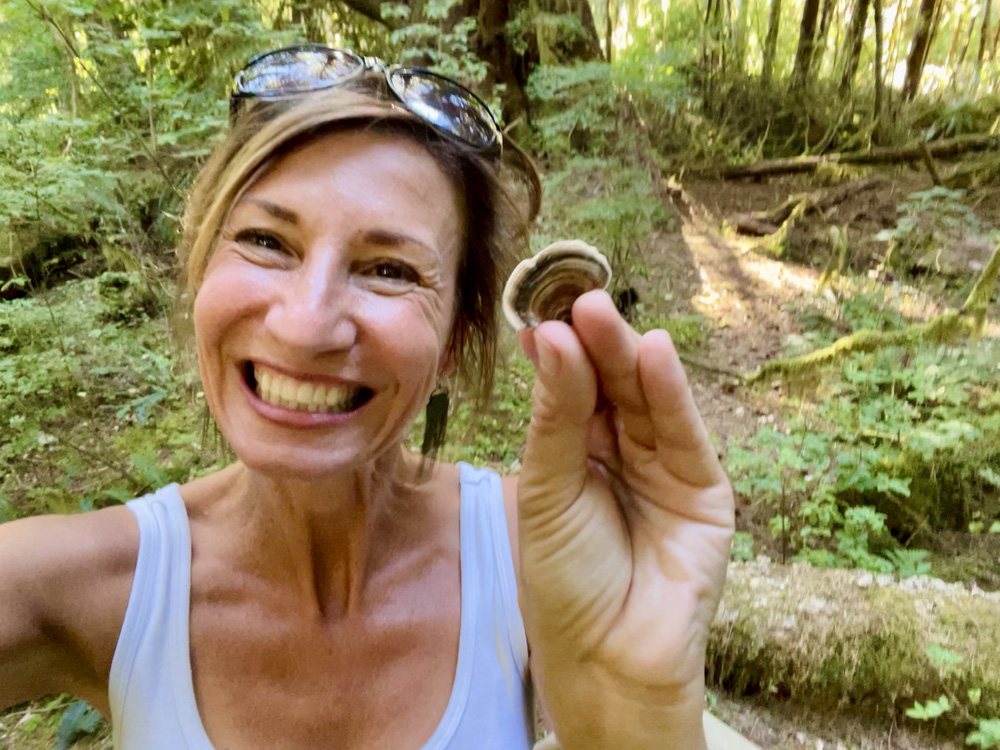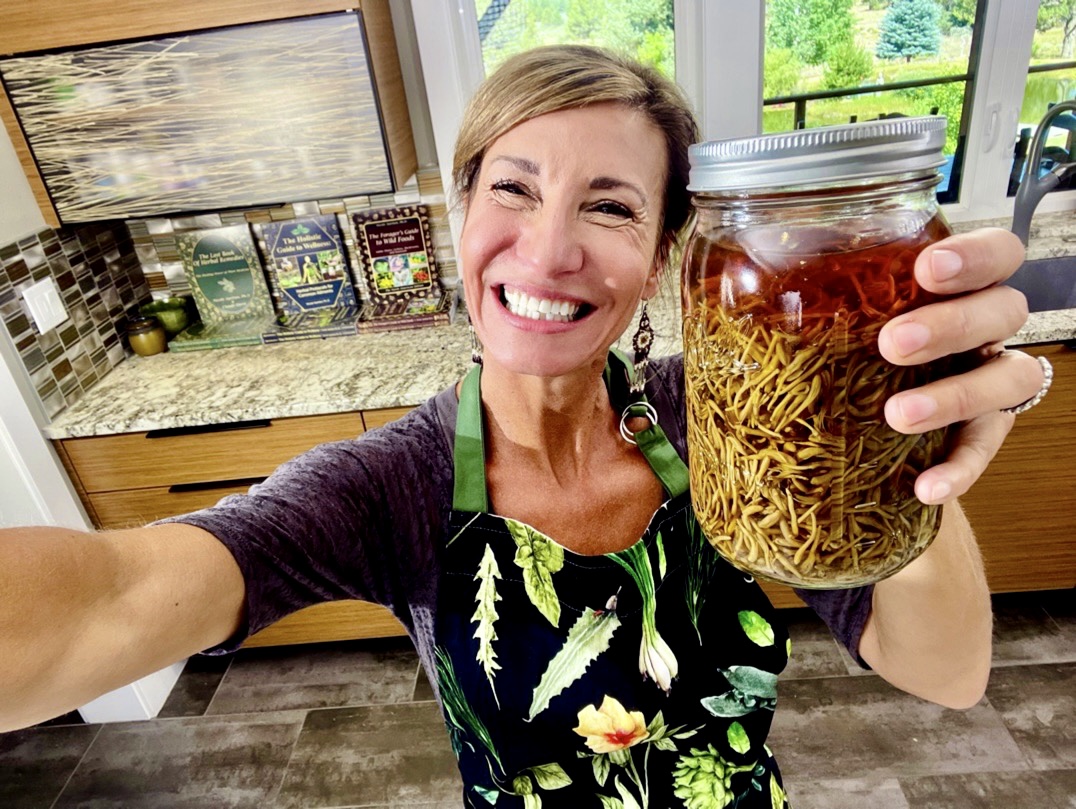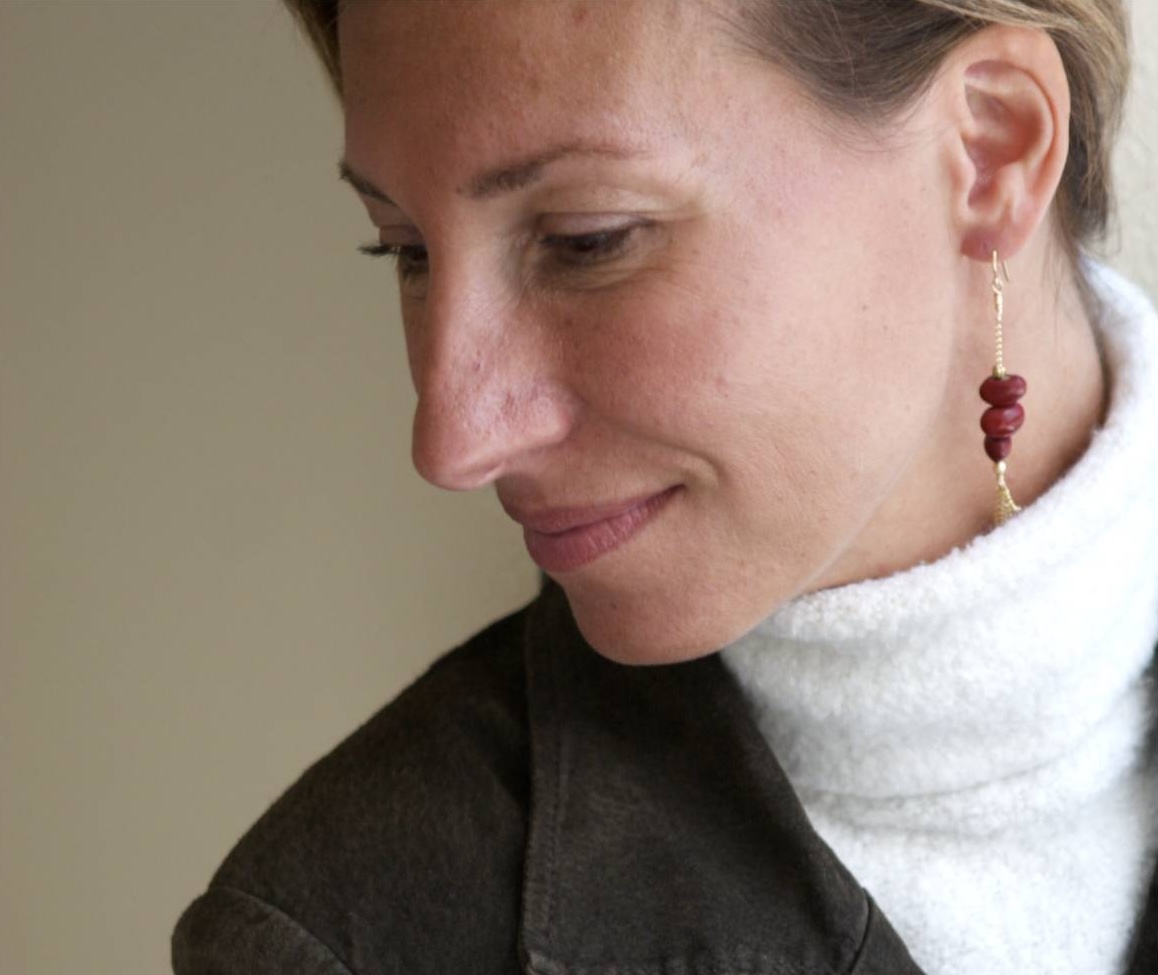Cultivating Self-Sufficiency & Natural Health
As our culture has changed over the past century with the rise of pharmaceuticals, there has been a significant shift away from herbal medicines to synthetic drugs. Personally, I believe this is a mistake. Not only are medicinal plants gentle because they work with your inner body chemistry, not against it, but these botanicals are also exceptionally effective in treating and preventing a wide range of health conditions. What’s more, plant-medicine has been time-tested over thousands of years via Traditional Chinese Medicine and Ayurveda.
Once you have become familiar with the different herbs, their uses, and how to prepare and preserve them, you also have the opportunity to custom-tailor a healing protocol designed specifically for your personal health needs and those of your family. This, in turn, frees you from expensive and side-effect-laden drugs, while also making you more self-sufficient in all circumstances.
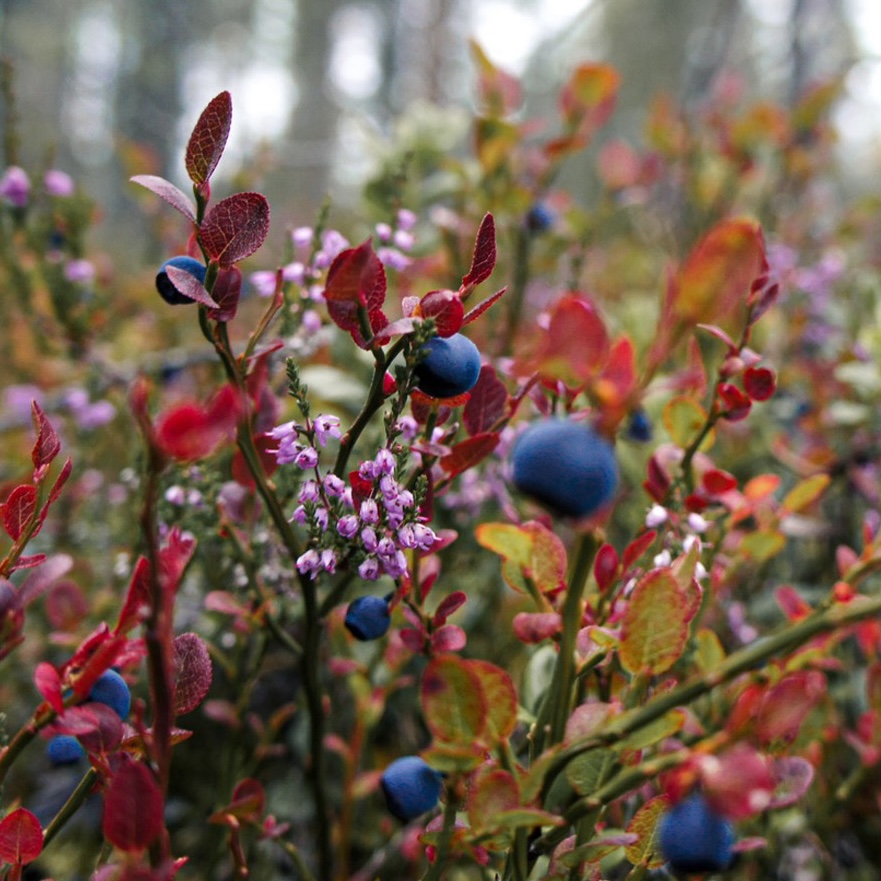
Where to Source Medicinal Plants
If you choose to forage your medicinal herbs, either from your cultivated garden or out in the wild, here are several tips to keep in mind:
It is always important to harvest flowers, leaves, seeds, and roots ethically. If a plant is sparse, it’s best to skip that area and seek out places with abundant growth. I also try to reseed wild areas to protect plant availability for upcoming years.
Harvest flowers once they are fully developed, but before they begin to fade. For large leaves, snap off the outer leaves at the base of the plant. With smaller leaves, pinch them off just above the leaf node (cluster). When gathering stems (think: stinging nettle), you want to make sure to leave at least a few inches of leafy stem so as not to destroy the plant. Cut right above where the leaves are.
To harvest roots, dig around the plant base in a wide circle so the roots stay intact. Then, gently lift the entire plant out once the soil is loosened. Seeds are gathered once the flower has faded and the petals have fallen off. Cut the entire flower head from the stem and shake the seeds into a bag.
For wild-harvested medicinal plants, a reliable foraging guide is essential, such as “The Forager’s Guide to Wild Foods, Edible Plants, Lichens, Mushrooms, and Seaweeds”. It is available in both North American and European versions, has detailed descriptions, and high-quality, full-color photographs for easy identification. It also includes dangerous look-alikes to watch out for, simple recipes, and general medicinal uses. I always recommend working with an expert out in the field for wild mushroom foraging until you have full confidence in safely identifying them.
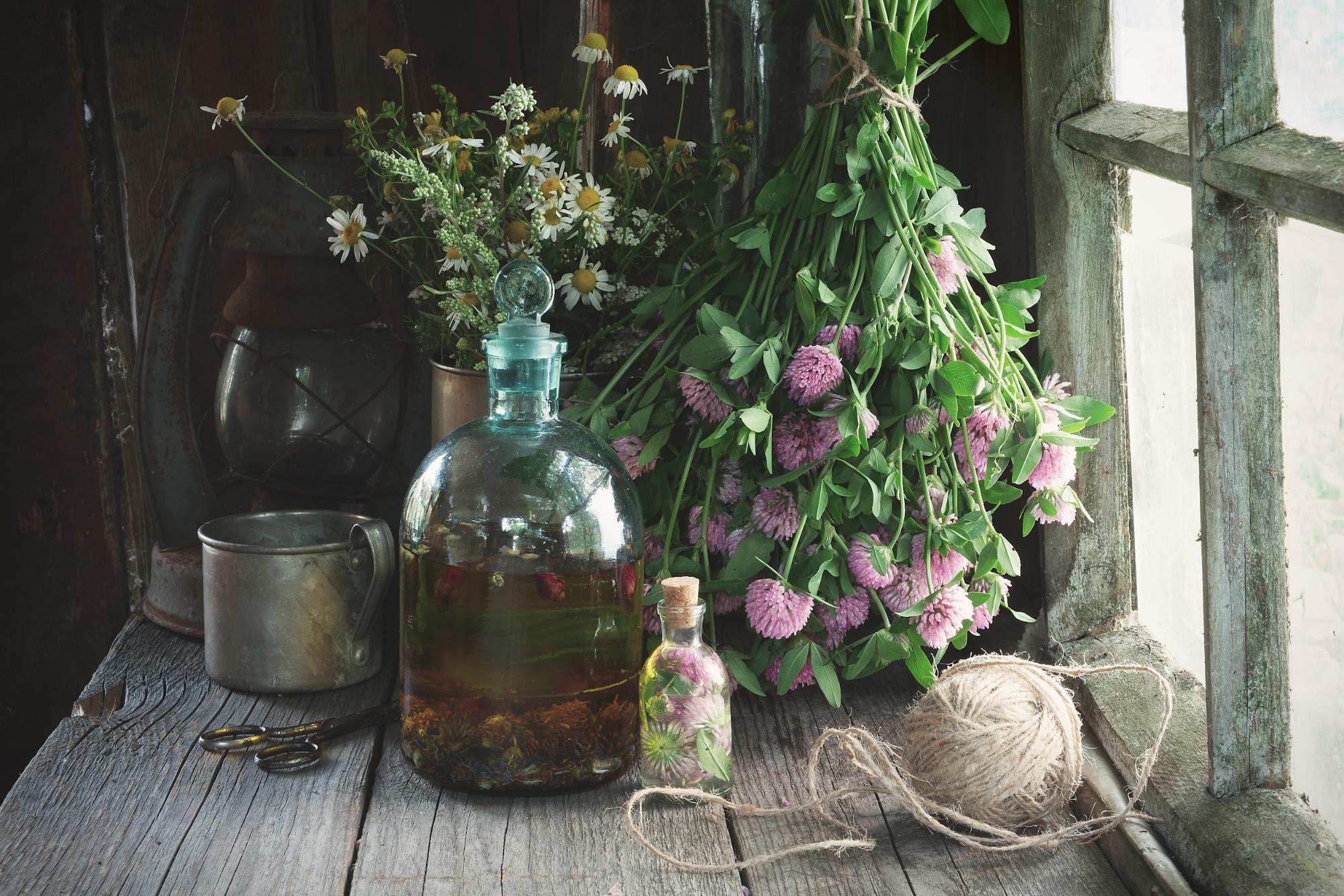
Preservation
Drying herbs is a straightforward affair as most can be bundled together with a string or rubber band and hung in a warm, dry location away from direct sunlight. You can also dry your herbs on the lowest setting in a dehydrator with a fan to circulate the warm air. Keep an eye on your herbs so they don’t burn if you opt for this method. Store the fully dried herbs in a sealed glass container for up to two years in a pantry, away from sunlight.
Tinctures are another form of preservation with the added benefit of creating a long-lasting, concentrated medicinal extract. When properly stored in a pantry, they can last up to seven years. See this post for the difference between alcohol, glycerin, and apple cider based tinctures and how to prepare each type.
An infusion helps to extract and preserve the medicinal compounds in an herb, but has a relatively short shelf-life. There are two types of solvents used to prepare an infusion: water and oil. Both can be made either hot or cold. Typically, water infusions are meant to be taken internally, while oil infusions are used in topical creams or salves for external use. Water infusions will last tightly covered in the refrigerator for up to 72 hours, although I recommend they be consumed right away for the highest potency. Oil infusions will stay fresh for a year in the refrigerator or a dark cool cupboard in a sealed container to avoid oxidation from exposure to air.
Creating an essential oil is another way to concentrate and preserve plant matter. The steam distiller equipment required to make an essential oil is surprisingly economical. A quick online search will bring up several options for around $100 US, which rapidly pays for itself considering the high cost of purchasing ready-made essential oils.
The advantage of making your own essential oils beyond cost savings is that you also can collect the hydrosol, which is a byproduct of the process. It’s similar in properties to the essential oil, but in a less-concentrated form, so you can utilize it directly without diluting it in a carrier oil. If stored in dark-tinted bottles away from heat and light, essential oils will retain their potency for up to four years.
Other forms of preservation include salves, syrups, and decoctions. Salves are a healing ointment that combines healing herbs, oils (including essential oils), and beeswax for application to the skin. A salve will keep well for around one to two years — longer if stored in a cool, dark location. Medicinal syrups are made by simmering medicinal plants (such as elderberry) with sugar or honey. When stored in the refrigerator, most last for one to two months.
Decoctions are a form of hot tea, but in a concentrated form as the herbs are simmered instead of steeped. Many times, this method is used for woody herbs that require a more robust extraction method. The shelf life is fairly short — around 48 hours in the refrigerator. You can freeze the decoction in an ice cube tray, then place the frozen cubes in a labeled Ziploc bag and store in the freezer to extend the shelf life.
Learning How to Utilize Medicinal Herbs
I have created several resources so you can dive deeply into how to identify, prepare, and utilize specific botanicals for a wide range of health conditions. These include my blog and newsletter, several books, including: “The Lost Book of Herbal Remedies”, my foraging guide, and “The Holistic Guide to Wellness”, as well as my new comprehensive online Master Herbal Academy.
In this hands-on course, I cover the fundamentals of plant medicine, field knowledge (including 52 lessons on specific herbs), the most powerful herbal remedies for twenty health conditions, along with detailed instructions for how to find, harvest, and preserve a range of medicinal plants — plus much more!
My online academy also includes a 300+ page ebook with easily accessible information from the course so you are never left guessing. Whether you are new to herbalism or a veteran, this academy has something for everyone.
Here is what people are saying about the course:
“I wanted to take a moment to express my sincere gratitude for the amazing content you’ve created for the Academy. From the moment I signed up a few hours ago, I’ve been blown away by the quality and detail of your work. The videos you’ve created are simply phenomenal. I appreciate how well-researched and informative they are, and the way you’ve presented the information is both engaging and easy to understand.
Additionally, the digital books you’ve produced are stunning – the layout is gorgeous, and the content is comprehensive and insightful. I’ve already had the pleasure of trying out the Nature’s Ibuprofen treatment, and the results have been fantastic.
I’m eagerly looking forward to learning more about the other remedies you have available. Thank you for dedicating your time and expertise to creating such a wonderful seminar. Your passion for this field shines through in every aspect of your work. I sincerely hope there will be more opportunities to learn from you in the future, especially in regards to autoimmune diseases. Wishing you all the best for continued success, good health, and happiness.” -Γιώργος Ισιδώρου
If you have ever had an interest in learning more about medicinal herbs, but didn’t know where to begin, my herbal academy master course is for you! Tap here to begin your exciting journey into the world of plant-based medicine!
Nicole Apelian

